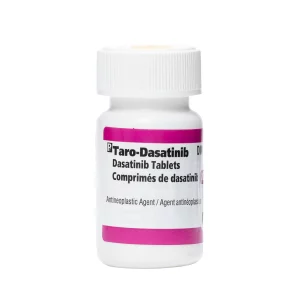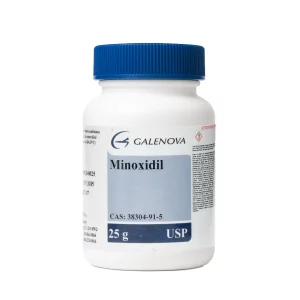Your cart is empty.
Your cart is empty.
Dasatinib, a cancer medication originally developed to treat leukemia, is now being investigated for something entirely different, its effects on the brain. Scientists are beginning to uncover how this drug might support cognitive function and brain aging by reducing inflammation and clearing out damaged cells. Some of these early findings suggest a potential link between Dasatinib brain health support and long-term cognitive resilience, sparking interest among longevity experts and wellness researchers.
This article explores what recent studies reveal about how dasatinib affects the brain, how it might influence inflammation, and what that means for healthy aging. We’ll break down how the Dasatinib mechanism of action works in the central nervous system, review the latest research on Dasatinib anti-inflammatory benefits, and explain how people exploring longevity strategies may one day consider ways to get Dasatinib under medical supervision.
Dasatinib is a tyrosine kinase inhibitor, a type of medication that blocks enzymes promoting the growth of abnormal cells. It’s currently approved for treating certain types of leukemia, such as chronic myeloid leukemia (CML) and acute lymphoblastic leukemia (ALL).
The drug’s original purpose is to stop cancer cells from multiplying by interfering with their signaling pathways. However, more recent research has shown that dasatinib also helps eliminate senescent cells, damaged cells that stop dividing but remain in the body, releasing harmful signals that promote aging and inflammation.

Brain health includes memory, focus, problem-solving, and emotional control. As we grow older, these functions can be affected by inflammation, oxidative stress, and cell damage, processes that can lead to cognitive decline or neurodegenerative disease.
Aging brains often lose what’s called cognitive reserve, the brain’s ability to compensate for damage and maintain performance. Boosting or preserving this reserve is a primary goal in aging research, and it’s one reason researchers are interested in how senolytic drugs like dasatinib might help.
The blood-brain barrier (BBB) is a protective shield of tightly packed cells that controls what substances enter the brain from the bloodstream. It helps prevent toxins and harmful agents from reaching brain tissue, but it also makes drug delivery to the brain more challenging.
Fortunately, several studies have confirmed that dasatinib can cross the blood-brain barrier under specific conditions. Variables such as dosage, timing, and individual differences in transporter proteins can influence how much dasatinib reaches the central nervous system and its concentrations in the cerebrospinal fluid (CSF). This ability makes dasatinib a unique candidate among compounds being studied for cognitive health.

Neuroinflammation is the term for inflammation in the brain, usually triggered by immune system cells known as microglia. These cells respond to threats but can become overactive with age or illness, leading to harm instead of healing.
Animal studies show that dasatinib reduces microglial activation. By clearing senescent cells that fuel this chronic immune response, dasatinib may help lower levels of inflammation in the brain. This could be a major factor in improving neurological health and preventing damage linked to conditions like Alzheimer’s or CNS disease.
Reducing inflammation may lead to improved memory, sharper focus, and better mood regulation. In animal models, older mice treated with dasatinib demonstrated better cognitive performance compared to untreated groups. These improvements were linked to healthier synaptic connections and stronger plasticity—the brain’s ability to adapt and grow.
The drug doesn’t work like typical stimulants or nootropics that provide a temporary boost. Instead, its effects target aging at the cellular level, making it a possible long-term strategy for preserving brain health rather than enhancing short-term performance.
Preclinical research, mostly in rodents, has shown that dasatinib can influence behavior and biological markers linked to cognition. For example, mice given dasatinib showed better performance in maze tests and memory-based challenges. Brain tissue analysis revealed reduced inflammation and better structural integrity in the nervous system.
While these results are encouraging, it’s important to understand that most of the data so far comes from animal studies. Large-scale human trials are still needed to confirm these findings, determine safe protocols, and understand long-term outcomes of dasatinib administration for cognitive purposes.
The growing interest in dasatinib’s brain-related potential includes researchers, longevity-focused clinics, and health-conscious individuals seeking to avoid cognitive decline. Many biohackers and early adopters are drawn to its ability to remove senescent cells, potentially clearing out cellular “clutter” that slows the brain down.
However, dasatinib is a prescription medication, and using it for off-label purposes like cognitive enhancement requires medical guidance. Anyone interested should consult professionals familiar with aging research and the brain’s unique biology, especially when it comes to crossing the blood-brain barrier safely.
Conventional brain supplements such as omega-3s, lion’s mane mushroom, and B vitamins aim to support neurotransmitter activity and brain energy. While these nutrients can be beneficial, they don’t eliminate the cause of cellular aging.
Dasatinib offers a unique mechanism by targeting the senescent cells that silently accumulate with age. Rather than acting on chemical signals or mood, it works on the deeper infrastructure, removing malfunctioning cells that might otherwise disrupt brain function. This sets it apart as a senolytic therapy, not a stimulant or mood enhancer.
Exciting studies are underway to determine whether dasatinib could play a role in preventing or slowing diseases like Alzheimer’s and Parkinson’s. Early pilot studies suggest it is well-tolerated and can reach the brain, with measurable changes in CSF biomarkers related to inflammation and aging.
Future research will aim to identify the safest and most effective treatment durations, dosages, and whether it works best alone or combined with other compounds like quercetin. While there is still much to learn, the groundwork is being laid for a new class of brain-protective therapies based on clearing senescent cells
It’s being researched for its ability to reduce brain inflammation and support cognitive function by targeting aging cells.
It may help calm overactive immune responses in the brain, which are linked to age-related decline.
Some preclinical studies suggest it may support cognition, but it’s too early to say definitively.
Yes, under specific conditions, dasatinib can cross the blood-brain barrier.
No, it’s not a traditional nootropic; it works by clearing senescent cells that affect overall brain health.
Only individuals under medical supervision, especially those working with longevity clinics or researchers.
Dasatinib may soon become a key player in the future of brain health, not just as a cancer treatment but as a tool for supporting long-term cognitive wellness. By crossing the blood-brain barrier and removing senescent cells, it targets aging where it starts—at the cellular level.
While much of the current research is still in the early stages, the potential for dasatinib to slow brain aging and protect mental clarity makes it an exciting candidate for further exploration. As new studies emerge, we’ll learn more about how this powerful drug could help people stay mentally sharp for years to come.
Porkka, K., Koskenvesa, P., Lundan, T., et al. (2008). Dasatinib crosses the blood–brain barrier and is effective against central nervous system Philadelphia chromosome–positive leukemia. Blood, 112(4), 1005–1012.
https://pubmed.ncbi.nlm.nih.gov/18477770/
Zhu, Y., et al. (2015). The Achilles’ heel of senescent cells: From transcriptome to senolytic drugs. Aging Cell, 14(4), 644–658.
https://doi.org/10.1111/acel.12344


Acarbose blocks carbohydrate breakdown in the small intestine, preventing rapid glucose absorption spikes.

Dasatinib eliminates senescent cells through selective apoptosis, clearing age-damaged tissues from the body.

Metformin inhibits hepatic glucose production while enhancing insulin sensitivity, offering cost-effective Type 2 diabetes management.

Minoxidil dilates scalp blood vessels, increasing nutrient delivery to hair follicles while extending the anagen growth phase duration.
Unlock savings on bundles and elevate your online experience today!